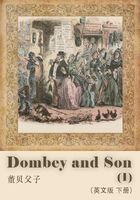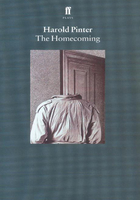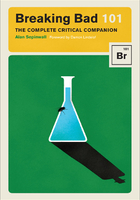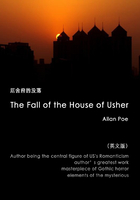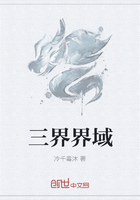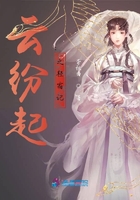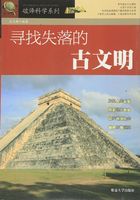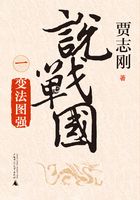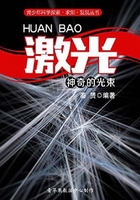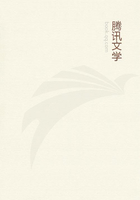The judge sent the cook to the police station the next day although he protested, knowing from the same accumulated wisdom of the ages that had led him to plead before the intruders that this was not a sensible idea.
Always bad luck, the police, for if they were being paid off by the robbers, they would do nothing, and if, on the other hand, they were not, then it would be worse, for the boys who had come the evening before would take their revenge. They had guns now, which they might clean of rust, fill with bullets and … shoot! One way or the other, the police would try to extract a bribe. He thought of the 250 rupees from the sale to Uncle Potty of his own meticulously brewed chhang, which so successfully rendered the aging bachelor into flat-on-the-floor drunkenness. Last night he had hidden the money in a pocket of his extra shirt, but that didn't seem safe enough. He tied it up high on a beam of his mud and bamboo hut at the bottom of the judge's property, but then, seeing the mice running up and down the rafters, he worried they would eat it. Finally he put it in a tin and hid it in the garage, under the car that never went anywhere anymore. He thought of his son, Biju.
They at Cho Oyu needed a young man on their side.
In his trembling message, brought forward as if by the motion of his wringing hands, he tried to emphasize how he was just the messenger. He himself had nothing to do with anything and thought it was not worth it to bother the police; he would sooner ignore the robbery and, in fact, the whole conflict and anything else that might give offence. He was a powerless man, barely enough learning to read and write, had worked like a donkey all his life, hoped only to avoid trouble, lived on only to see his son.
Unfortunately the policemen seemed perturbed and questioned him harshly while also making their scorn for him clear. As a servant, he was far beneath them, but the robbery of guns from a retired member of the judiciary could not be ignored and they were forced to inform the superintendent.
That very afternoon the police arrived at Cho Oyu in a line of toad-colored jeeps that appeared through the moving static of a small anxious sleet. They left their opened umbrellas in a row on the veranda, but the wind undid them and they began to wheel about—mostly black ones that leaked a black dye, but also a pink, synthetic made-in-Taiwan one, abloom with flowers.
They interviewed the judge and wrote out a report to confirm a complaint of robbery and trespassing. "Any threats made, sir?"
"They asked him to set the table and bring the tea," said the cook in complete seriousness.
The policemen began to laugh.
The judge's mouth was a straight grim line: "Go sit in the kitchen. Bar bar karta rehta hai."
The police dusted the surfaces with fingerprint-lifting powder and placed a melamine biscuit jar with greasy pakora thumbprints in a plastic bag.
They measured the footprints coming up the steps of the veranda and uncovered proof of several assorted sizes of feet: "One very big one, sir, in a Bata gym shoe."
Mostly, because the judge's residence had long been a matter of curiosity in the bazaar, they, like the gun robbers, took the opportunity to have a good nosy look around.
And, like the robbers, they were not impressed by what they saw. They surveyed the downfall of wealth with satisfaction, and one of the policemen kicked a shaky apparatus of pipes leading from the jhora stream, bandaged here and there with sopping rags. He shone his torch into the toilet tank and discovered the flushing contraption had been fixed with rubber bands and bamboo splints.
"What evidence are you going to find in the toilet?" asked Sai, following him around, feeling ashamed.
The house had been built long ago by a Scotsman, passionate reader of the accounts of that period: The Indian Alps and How We Crossed Them, by a Lady Pioneer. Land of the Lama. The Phantom Rickshaw. My Mercara Home. Black Panther of Singrauli. His true spirit had called to him, then, informed him that it, too, was wild and brave, and refused to be denied the right to adventure. As always, the price for such romance had been high and paid for by others. Porters had carried boulders from the riverbed—legs growing bandy, ribs curving into caves, backs into U's, faces being bent slowly to look always at the ground—up to this site chosen for a view that could raise the human heart to spiritual heights. Then the piping arrived, the tiling and tubing, the fancy wrought-iron gates to hang like lace between the banks, the dressmaker's dummy, which the police now stomped up to the attic and discovered—bom bom, the vigor of their movements causing the last remaining Meissen cup to gnash like a tooth on its saucer. A thousand deceased spiders lay scattered like dead blossoms on the attic floor, and above them, on the underside of the tin sieve roof, dodging drips, their offspring stared at the police as they did at their own ancestors—with a giant, saucer-sized lack of sympathy.
The police collected their umbrellas and went tramping across to the cook's hut, extra careful, extra suspicious. Everyone knew it was the servants when it came to robbery, more often than not.
They walked past the garage, car sunk low, nose to the ground, grass through the floor, its last groaning journey made to Darjeeling for the judge to see his only friend, Bose, long forgotten. They passed an oddly well maintained patch behind the water tank, where a saucer of milk and a pile of mithai had been spilled and pocked by the sleet. This weedless corner dated to the time when the cook, defeated by a rotten egg and made desperate, had defecated behind the house instead of at his usual place at the far end of the garden, thereby angering two snakes, mia-mibi, husband and wife, who lived in a hole nearby.
The cook told the policeman of the drama. "I wasn't bitten, but mysteriously my body swelled up to ten times my size. I went to the temple and they told me that I must ask forgiveness of the snakes. So I made a clay cobra and put it behind the water tank, made the area around it clean with cow dung, and did puja. Immediately the swelling went down."
The policemen approved of this. "Pray to them and they will always protect you, they will never bite you."
"Yes," the cook agreed, "they don't bite, the two of them, and they never steal chickens or eggs. In the winter you don't see them much, but otherwise they come out all the time and check if everything is all right. Do a round of the property. We were going to make this part a garden, but we left it to them. They go along the fence all around Cho Oyu and back to their home."
"What kind of snake?"
"Black cobras, thick as that," he said and pointed at the melamine biscuit jar that a policeman was carrying in a plastic bag. "Husband and wife."
But they had not protected them from the robbery … a policeman banished this irreligious thought from his mind, and they skirted the area respectfully, in case the snakes or their offended relatives came after them.
The respect on the policemen's faces collapsed instantly when they arrived at the cook's hut buried under a ferocious tangle of nightshade. Here they felt comfortable unleashing their scorn, and they overturned his narrow bed, left his few belongings in a heap.
It pained Sai's heart to see how little he had: a few clothes hung over a string, a single razor blade and a sliver of cheap brown soap, a Kulu blanket that had once been hers, a cardboard case with metal clasps that had belonged to the judge and now contained the cook's papers, the recommendations that had helped him procure his job with the judge, Biju's letters, papers from a court case fought in his village all the way in Uttar Pradesh over the matter of five mango trees that he had lost to his brother. And, in the sateen elastic pocket inside the case, there was a broken watch that would cost too much to mend, but was still too precious to throw away—he might be able to pawn the parts. They were collected in an envelope and the little wind-up knob skittered out into the grass when the police tore open the seal.
Two photographs hung on the wall—one of himself and his wife on their wedding day, one of Biju dressed to leave home. They were poor-people photographs, of those unable to risk wasting a picture, for while all over the world people were now posing with an abandon never experienced by the human race before, here they were still standing X-ray stiff.
Once, Sai had taken a picture of the cook with Uncle Potty's camera, snuck up on him as he minced an onion, and she had been surprised to see that he felt deeply betrayed. He ran to change into his best clothes, a clean shirt and trousers, then positioned himself before the National Geographies bound in leather, a backdrop he found suitable.
Sai wondered if he had loved his wife.
She had died seventeen years ago, when Biju was five, slipping from a tree while gathering leaves to feed the goat. An accident, they said, and there was nobody to blame—it was just fate in the way fate has of providing the destitute with a greater quota of accidents for which nobody can be blamed. Biju was their only child.
"What a naughty boy," the cook would always exclaim with joy. "But basically his nature was always good. In our village, most of the dogs bite, and some of them have teeth the size of sticks, but when Biju went by no animal would attack him. And no snake would bite him when he'd go out to cut grass for the cow. He has that personality," the cook said, brimming with pride. "He isn't scared of anything at all. Even when he was very small he would pick up mice by the tail, lift frogs by the neck… ." Biju in this picture did not look fearless but appeared frozen, like his parents. He stood between props of a tape player and a Campa Cola bottle, against a painted backdrop of a lake, and on the sides, beyond the painted screen, were brown fields and slivers of the neighbors, an arm and a toe, hair and a grin, a chicken tail frill, though the photographer had tried to shoo the extras out of the frame.
The police spilled all the letters from the case and began to read one of them that dated to three years ago. Biju had just arrived in New York. "Respected Pitaji, no need to worry. Everything is fine. The manager has offered me a full-time waiter position. Uniform and food will be given by them. Angrezi khana only, no Indian food, and the owner is not from India. He is from America itself."
"He works for the Americans," the cook had reported the contents of the letter to everyone in the market.

